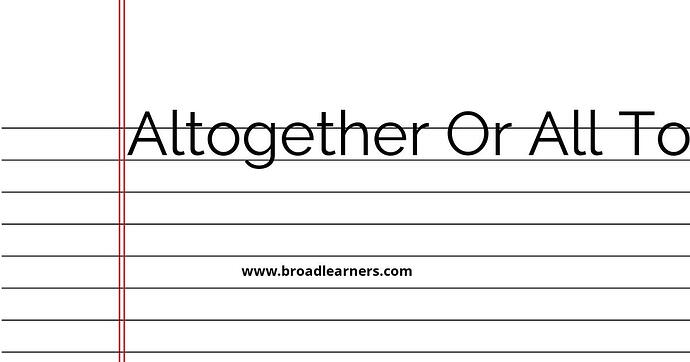'Altogether' and 'all together' are commonly confused phrases in English grammar. Understanding the difference between 'altogether' and 'all together' is important to use them correctly in written and spoken English.
'Altogether' is an adverb that means completely or entirely. It is used to indicate the total sum or the overall amount of something.
'All together' is a phrase that means everyone or everything in a group or gathering. It is used to describe a situation where multiple people or things are in one place or doing something simultaneously.
Let's take a closer look at the meanings and usage of 'altogether' and 'all together'.
| 'Altogether' | 'All Together' |
|---|---|
| The word 'altogether' is an adverb that means completely or entirely. | The phrase 'all together' means everyone or everything in a group or gathering. |
|
|
To remember the difference between 'altogether' and 'all together', it can be helpful to remember that 'altogether' refers to completeness or entirety, while 'all together' refers to a group or gathering of people or things.
Here are some examples of correct usage:
- I am altogether pleased with the outcome of the project. (completely pleased)
- They were all together at the concert. (everyone was present)
- Let's clap all together to show our appreciation. (everyone clapping at the same time)
- She is altogether talented in multiple fields. (completely talented)
Remembering the correct usage of 'altogether' and 'all together' will improve your grammar and communication skills.
